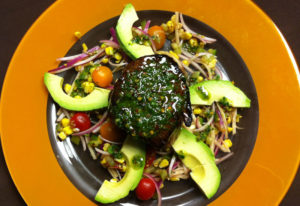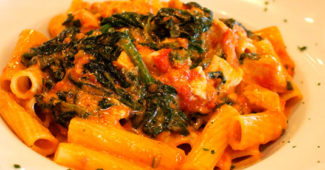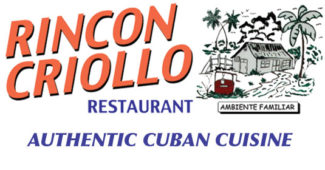 |
 Maria DiGiorgio is a lifelong New Yorker, who currently resides in Commack, with her family. She is a devoted wife and mother, an educator and designer. Maria is active in her community, as a PTA mom and Girl Scout leader. She has a passion for interior decorating and loves to garden. She is an avid reader, and enjoys writing about life experiences and parenthood, as well as her personal observations about the world around us. |
| Have you ever noticed just how often we are bombarded by the notion of food, in our day-to-day lives? As the mindfulness meditation (from Jon Kabat-Zinn) tells us: “Wherever you go, there you are”, in today’s world, we could easily substitute: “wherever we go, there is food”. From the supermarket checkouts to the drugstore aisles, on television, in movie theaters, at sporting and entertainment events, on billboards and in cyberspace, we are faced with unhealthy food options, cleverly positioned to steal not just our attention, but our ill-fought efforts to remain health-conscious, in a society that professes one belief, while subscribing to another. The paradox is really quite amusing, albeit unfortunate, for all, who find themselves grappling with the desire to be healthy and stay fit, while surrounded by advertisements and opportunities that seek to deliver the exact opposite effect. What is a consumer to do, you may ask? The best course of action is education. Understanding the facts about food, fitness and the influence of advertising, can have a huge impact on our interpretation of such gimmicks. Candy and sugary beverages are generally placed at points where one is expected to feel tired, frustrated or just a bit listless. Checkout counters are prime real estate for such impulse purchases, as people are finally drawing near to the end of their designated tasks, and usually are in need of a little “pick-me-up”. Being armed with this information beforehand puts you, the consumer, in a formidable position, as opposed to one, whereupon you are taken off-guard. You can now make an “informed decision” as to whether or not you really want a piece of candy or bottle of soda, or if you are unwittingly succumbing to the suggestion that you “should” oblige, and make that purchase. Becoming familiar with the placement of certain food products in grocery store chains, or understanding the “science” behind the aroma of fresh-popped popcorn as you enter the movie theater, and the suggestibility factor it provides, as well as all the other media methods of fostering food on consumers, will serve to protect your interests, while striving for a healthier lifestyle, as well. In our culture, especially, but truly in all cultures, food is a major source of celebration and of life. We associate events, emotions, and activities with food. Socialization has become synonymous with eating, drinking and indulging in all kinds of treats. We need to learn about the connection we have with food, and then, to separate what we feel, believe and wish to partake of, from what society, at large, would have us do. Making choices that are based upon our needs and desires puts us in a very different posture. We do not have to be swayed by the lure of excess we are exposed to. We should become educated consumers: reading labels, understanding portion size and calorie content, as well as other factors that will directly affect our health, when making food choices. We are responsible for our own well-being. We must take an active role in advocating for ourselves and for our loved ones, and in doing so, we advocate for the health and longevity of all people: food for thought, indeed! |
|











 20 lucky winners will win $500 each in prizes totaling $10,000.
20 lucky winners will win $500 each in prizes totaling $10,000. 